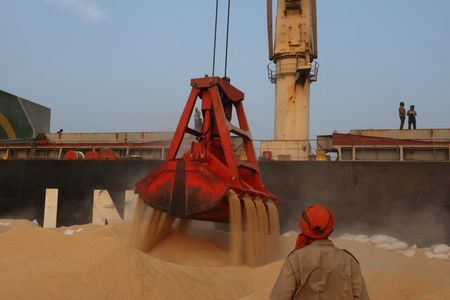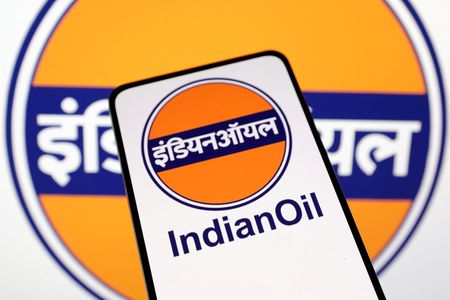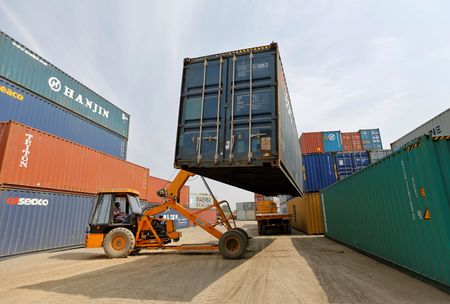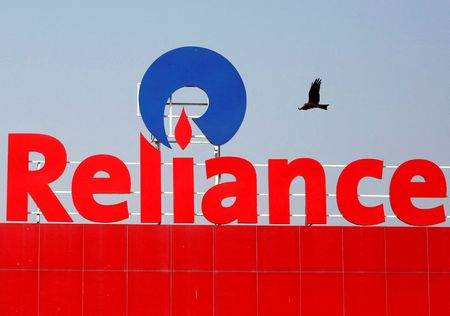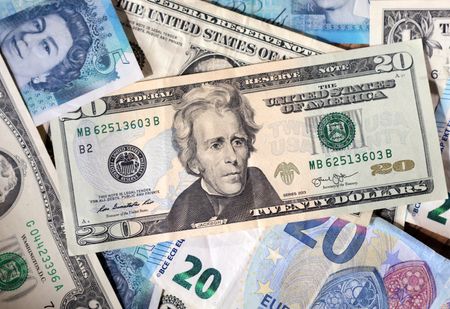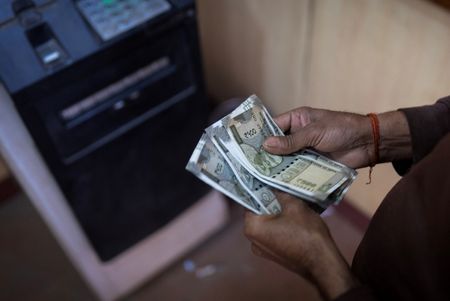By Rajendra Jadhav
DEVAS, India (Reuters) -Soybean acreage in India is likely to fall this year as corn and sugar cane could replace it in some areas after these crops gave higher returns to farmers than the oilseed, farmers and industry officials told Reuters.
Soybean is India’s main summer-sown oilseed crop and lower output will force the world’s biggest importer of edible oils to increase overseas buying of palm oil, soyoil and sunflower oil.
“We’ve barely made any profit from soybean over the past three years, so this year we’re switching to corn — it’s giving better returns,” said Subodh Parmar, a farmer in Devas in Madhya Pradesh state.
Soybean prices were under pressure in the last few months, which is prompting farmers to switch to other crops, said D.N. Pathak, executive director of the Soybean Processors Association of India (SOPA).
The government fixed a floor price of 4,892 rupees ($57.29) per 100 kg for soybean, but since the start of the new marketing year in October 2024, prices have been 10 to 20% below this level.
Soybean is mainly a rain-fed crop, and the monsoon rains – expected to be above average this year – play a crucial part in deciding yields.
The states of Madhya Pradesh in central India, Maharashtra in the west, Rajasthan in the northwest and Andhra Pradesh and Karnataka in the south, are major producers of soybean.
Soybean contains more than 80% meal and less than 20% oil, but local soymeal demand has been squeezed by cheaper supplies of distiller’s dried grains with solubles (DDGS), a byproduct of ethanol production, said B.V. Mehta, executive director of the Solvent Extractors’ Association of India (SEA).
The poultry industry is a big consumer of soymeal, but in the past two years it has been replacing soymeal with DDGS since it is more than 30% cheaper, Mehta said.
In Maharashtra, the leading producer of sugar in India, ample rainfall has prompted some farmers to switch to water-intensive perennial sugarcane, said a Mumbai-based dealer with a global trade house.
“It seems the new soybean crop will be considerably lower than last year’s. This will obviously force India to increase imports of edible oils,” the dealer said.
India buys palm oil mainly from Indonesia and Malaysia, while it imports soyoil and sunflower oil from Argentina, Brazil, Russia and Ukraine.
($1 = 85.3850 Indian rupees)
(Reporting by Rajendra Jadhav; Editing by Susan Fenton)

